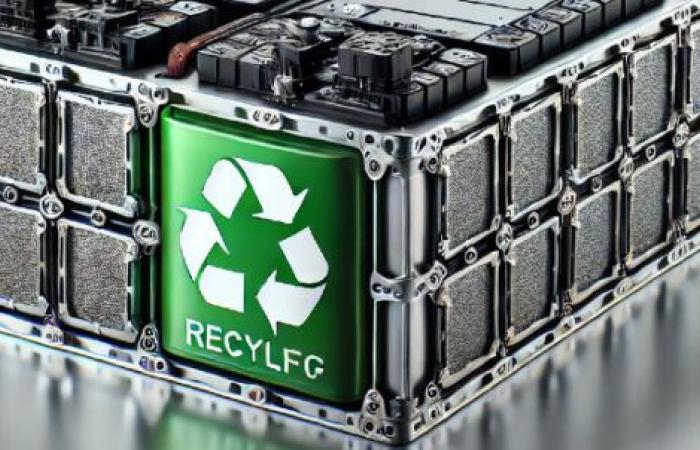The drop in sales of electric vehicles observed in 2024 is necessarily a bad signal for the industrial sector for the production of electric batteries.
Through a snowball effect, battery recycling plants are also impacted, with many uncertainties about the volumes to be recycled in the years to come. But other factors are weakening the electric battery recycling model implemented at French and European level.
Alexandre Chagnes is a teacher-researcher at the University of Lorraine and scientific director of LabeEx RESSOURCES21a laboratory of excellence whose mission is to improve the understanding and management of strategic metals.
He explains, for Techniques de l’Ingénieur, the different factors which add up and impact the industrial sector of batteries, and in turn that of the recycling of the latter.
Engineering Techniques: Sales of electric vehicles were lower than expected in 2024. What are the reasons?
Alexandre Chagnes: It is true that sales forecasts for electric vehicles turn out to be higher than those that actually occur. Various European countries, including France, have implemented actions, such as the ecological bonus, to support sales of electric vehicles. Some countries like Germany have decided to end these subsidies, other countries like France will reduce them from 2025. This aid has made it possible to increase sales of electric vehicles, and it is difficult today to predict what will be the exact consequences of the end or reduction of these support mechanisms.
The reality today is that electric vehicles remain very expensive, even if the development of gigafactories should make it possible, by 2030, to have electric vehicles on the market at the same price as thermal vehicles.
The battery market is also suffering. Is this only due to the fall in sales of electric vehicles?
Not only that, no. The period of turbulence currently affecting the battery industrial ecosystem is not only linked to the fall in sales of electric vehicles. There is a problem of ramping up the production of batteries, and there is also the shock caused by the announcements of financial losses – almost 13 billion euros – from Northvolt, which had an impact on the entire battery ecosystem, including that of recycling. This announcement caused a shock wave on all other gigafactories, and on investors, because the problem that the company encountered in its ramp-up could affect other gigafactories.
-This is not something that had been anticipated, because the Chinese model has shown that this increase in pace is possible. However, the Chinese started this increase in pace more than 15 years ago and have today overcome these difficulties.
Does the European choice to mainly produce NMC batteries also play a role?
Yes. European players in the electricity sector thought they had made the right choice by focusing on NMC (nickel-manganese-cobalt) batteries, while Asian players developed both NMCS batteries and LFP (lithium-iron-phosphate) batteries. ). Today, some gigafactories are going backwards a little. To lower the production costs of electric batteries, in order to stimulate sales and increase production rates, the technological choice of turning to the production of LFP batteries, less expensive than NMC batteries, even if the latter are less efficient, is considered.
What is the impact on battery recycling plants?
It is very important. In the coming decade, recycling plants will mainly recycle not used batteries, but industrial residues from gigafactories, which represent a very significant quantity of material to be recycled. So, if gigafactories produce less, or there are fewer gigafactories than expected, the economic model of recycling plants no longer works.
Also, the uncertainties surrounding the technological choices between NMC or LFP batteries have a direct impact on recyclers. The recycling processes implemented are specific for each type of material constituting the batteries. A recycling plant that recycles NMC batteries will not be able to recycle LFP batteries with the same process. It should also be borne in mind that recycling LFP in an economically viable way is much more complicated than for NMC since the materials constituting LFP batteries are much cheaper. It is therefore more complicated to derive value from it. To my knowledge, there are currently no French projects for the large-scale recycling of LFP batteries. There are projects to produce LFP batteries, so the subject of recycling will inevitably come up on the table when these become formalized, but it will take some time.
Comments collected by Pierre Thouverez






